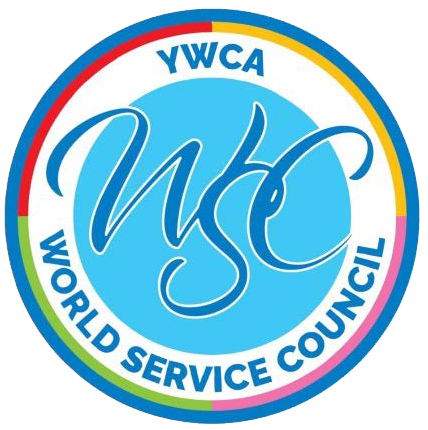
Join Hearts and Hands With YWCA Sisters From Around the Globe
History in the Making!
After working with the World YWCA over the past several years to expand the capacity and impact of the World Service Council worldwide, the WSC Executive Committee voted unanimously on October 13 to change our structure to one that welcomes broader global participation and leadership from YWCAs worldwide. This change will ensure that our legacy of giving and leadership continues and grows broader, stronger, and more connected than ever.
We will share a formal announcement of this milestone at the WSC’s annual meeting on March 12, 2026, in NYC, in conjunction with the UN Commission on the Status of Women hearings, a fitting moment to reaffirm our commitment to women’s leadership and equality. On World YWCA Day, April 24, 2026, plan to join us as we mark the global rollout of this new chapter.
While this is an exciting evolution, the heart and spirit of the WSC remain unchanged. We will continue to be the community of friendship, generosity, and purpose that has always defined us, now strengthened by the creation of a global alumnae network connecting women across continents. This next step will also involve the establishment of a new foundation in Switzerland to provide a lasting, transparent home for the WSC’s legacy of giving, ensuring that our impact endures for years to come.
For more than a century, the WSC has been a trusted partner and vital source of support for the World YWCA. Together, we are now building on that foundation to strengthen the movement for generations to come. This monumental pivot has been made possible through the generosity of WSC members and the steadfast leadership of women like Joyce Mims and Connie Tate. Inspired by their legacy, we now look to the opportunities ahead to truly upend gender inequality. It is time to muster the courage and resolve our fore-sisters showed after World War I and come along on this exciting journey of change.
Together, We Begin the Next Chapter.
Whether you have already donated to the WSC this year or have yet to do so, a contribution at this time will help launch a revolutionary movement-wide solidarity fund that will unite YWCA women from all across the globe — and one that will make a difference the whole world will notice.
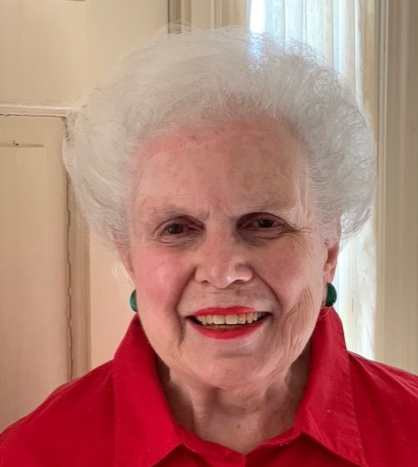 Former WSC Chair Joyce Mims leaves a formidable legacy
Former WSC Chair Joyce Mims leaves a formidable legacy
Joyce Mims, who guided the YWCA World Service Council (WSC) for 22 years from 1989 to 2011, passed away September 15. As one of its steadfast members and longest chair, she led with sublime grace. In a WSC centennial tribute, Mary Ann Lundy described Joyce as “cordial and welcoming with her knowledge of everything YWCA”. Her tenacious dedication to the Council was instrumental in maintaining a strong presence during times when the national YWCA gave little support and had little connection with YWCAs around the world. For help she enlisted her husband (Bud) as her “secretary” and their home become a second office of WSC for many years.
While she was one of the most generous donors to the WSC over the years, Joyce’s fundraising efforts were considerable. Not only did she attract new members with her enthusiasm and storytelling, she nurtured members with thoughtful correspondence, both letters and postcards, in beautiful language. To receive mail from Joyce was like getting a gift. For instance, when she attended World YWCA meetings, she would take along her WSC membership list and send postcards from the host country to each WSC member. Her direct relationship to the World YWCA prompted communication about items of interest to members that resulted in financial commitments.
Joyce began her YWCA relationship while a student at the University of Texas where she credits Rosalie Oaks, Director of the YWCA at the university, for nurturing and training that led to unimaginable opportunities for travel and to learn about the world. Not only did she participate in a student study tour of Europe she went on the first USA student exchange visit to the USSR to several places where no Americans had been before. As a student she also attended the World Council in Mexico plus subsequent World Councils in Switzerland, Norway, Korea and Kenya.
From student to consummate YWCA leader, she chaired many committees including administering the USA-USSR exchange program for YWCA USA and serving as president of the Montclair YWCA and its Board of Trustees. She proclaimed that the YWCA has put her in extraordinary and unusual places such as Ukraine, the White House, China for the YWCA’s 100th anniversary, and the convention in Cleveland where attendees joined the protests in the streets – a time when people were willing to get out and take risks.
When asked about the future of the YWCA in 2020, she challenged the YWCA to let go of old norms and explore new ways to address the issues that have been unveiled by Covid and political division. Her exceptional legacy should inspire each of us to follow in her footsteps. The World Service Council of the YWCA USA is a model that the World YWCA is incorporating into its work, and hopefully, YWCAs in other countries will be encouraged to establish World Service Councils in their YWCAs that support and link to YWCAs around the world.
Joyce would be proud of our new direction and invite us, as she always did “to walk cheerfully over the face of the earth, responding to that of God in everyone.”
World Service Council News

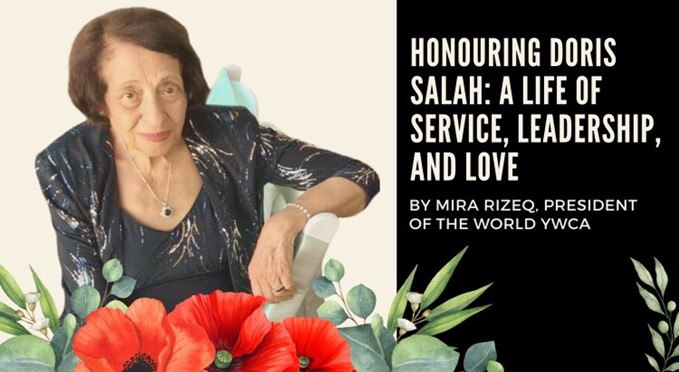
World Service Council loses a key leader
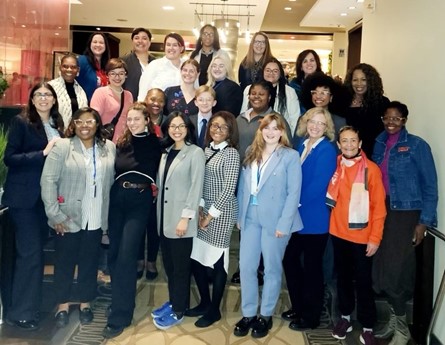
CSW 68 focuses on funding for gender equality
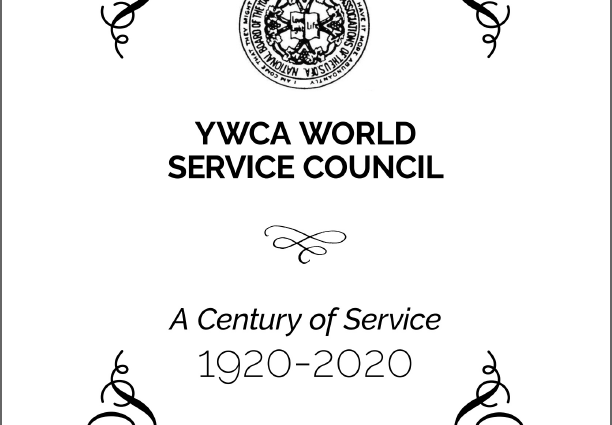
A Commemorative Book Tells the Story of the World Service Council
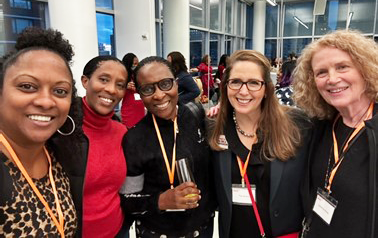
World YWCA Takes on UN CSW 67
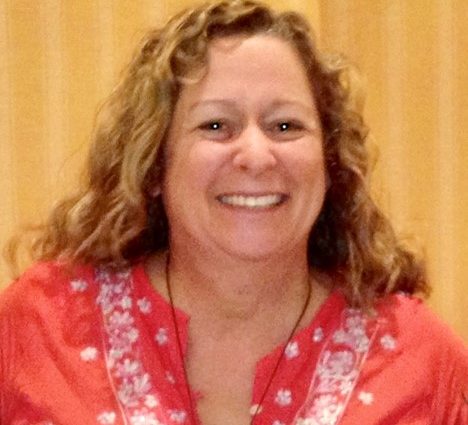
Abigail Disney’s New Film attacks Corporate Greed
Honoring Connie Tate and Joyce Mims
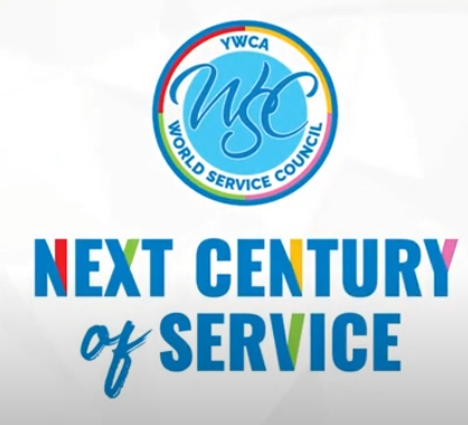
WSC Launches Next Century of Service
What we’re talking about on Facebook
This content isn't available right now
When this happens, it's usually because the owner only shared it with a small group of people, changed who can see it or it's been deleted.This content isn't available right now
When this happens, it's usually because the owner only shared it with a small group of people, changed who can see it or it's been deleted.This content isn't available right now
When this happens, it's usually because the owner only shared it with a small group of people, changed who can see it or it's been deleted.